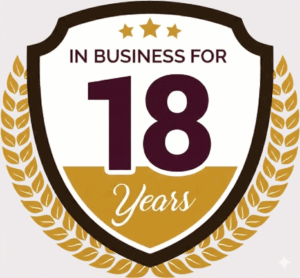






As both you and your parents or loved one are new to their new living situation in an assisted living facility, it’s best to talk about what each person wants from a visit and make a flexible plan. This will show your loved one that you have set aside time for them, and a well-planned schedule will help you to feel less stressed. You may have different ideas about what visits should be like, but if you talk to each other with care, you can meet in the middle and set reasonable goals.
Everything will depend on you and your loved one as to what works best for both. Do not go every day if you can help it; instead, visit once a week, every other day, or every three days. Keeping a low profile at the beginning will help your loved one to get acclimated to their new environment more quickly. Just knowing that you support them can be more than enough to make them feel at ease in their new home.
Seniors living in assisted living facilities have the right to meet privately with anyone they want in the facility, including family, friends, and advocates, without giving advance notice. However, the facility may have designated visiting hours which are given when the senior moves into the home. However, the hours are often quite flexible as long as the visitors are respectful of all citizens. Be sure to check for different hours during holidays.
Every community has its own rules, but in general, approved family members or guardians can take their loved one on short trips outside of the community. We suggest working with staff to plan these kinds of trips. Also, avoid making plans for an outing on the first visit while your parent or loved one is acclimating to the move.
Take your mom, dad or loved one out for ice cream or whatever he/she likes. Be very clear about what you are going to do when you leave the building, as your loved one may think this is the end of their stay in assisted living. Inform your loved one and make sure to create a plan with the staff with clear indications of when you will leave and return.
The transition to assisted living can come with many feelings and concerns, which is why you should take a few things into consideration before your visits:
The best way you can show how much you love your parent when visiting is to ask them about their time there so far. Do not bombard them with information from the outside world; instead, focus on their new world. Most importantly, make sure to be present as if you seem ready to leave or fiddle with your keys; your parents will sense your desire to go.
If you want to be as present as possible during your visit, you might want to turn off your electronics. Also, notice your other nonverbal cues, such as not looking them in the eye, constantly looking elsewhere, or talking to staff instead of to your parent. Spend your time listening to them and answering their questions to get the most out of your visit.
Plan your visits once you know your loved one’s new schedule. Find out what time she gets out of bed, eats, and has activities she wants to participate in before planning visits. While you want to visit your loved one, you do want to make sure he or she becomes involved in their new community. Encourage them to try out activities available in the facility, meet other people, and make friends.
Remember, everything at the facility is new for your parent or loved one, and they may need physical affection to feel loved. When there, hug your loved one and hold their hand to ensure they get the touch he/she craves. Of course, you know your loved one best; if they were not very touchy-feely before, then try to maintain the same level of touch you had before they moved into the home.
Your parent or loved one loves you but wants to see other family and friends. Talk to your other family members and work out a plan for everyone to visit on separate days. Also, bring your children and spouse occasionally, but try to bring only you and one other person if possible to avoid overwhelming your loved one. The same goes for your siblings and for your parent or loved one’s friends.
Living in a new home means your mother, father, or spouse has a new community. From his or her favorite staff member to their group of card buddies, they have new people they want to share with you. Try to meet these people and keep track of the mention your loved one makes of them in conversation to be relevant in their new life.
Yes, guests can eat with a resident as long as both the resident and the guest are aware of the risks and rules. Depending on the COVID rules and regulations, you may need to dine in a separate area with your parent instead of the main dining facility. Find out beforehand if you will need to pay or if the meal is covered under your parents.
Visitations can take place in any of the common areas of the facility. This includes:
All rooms at Stellar Care are currently private; however, if we begin to offer semi-private rooms again then visitation won’t be permitted in the room. If you plan the visit at night, the visit should take place in a different part of the facility, or plan to visit when the roommate is not there if you’d like to visit in the room.
With COVID, visiting the elderly in assisted living facilities has changed. Large volumes of visitors may need to make appointments or check for current variant status before arriving. Some facilities change the rules for holidays such as Christmas to keep better track of visitor traffic. Also, they may need to create physical distance to prevent health concerns. If the physical distance can not be kept or if it affects the rights and safety of others, the facility must show that good faith efforts are made to make visitation possible.
Getting all of the recommended COVID-19 vaccine doses is the best way to protect everyone from the COVID-19 Omicron variant or any other version of COVID-19. Also, following the rules and guidelines help to mitigate any issues such as wearing masks, washing hands, and keeping distance from other visitors and residents.
Visitors must wear masks and stay away from other residents and staff when they are in a common area of the facility, even if they have been vaccinated, depending on the current facility status or governmental procedures. We strongly suggest that visitors wear masks when visiting residents in private places, like a resident’s room, when the roommate is not there if the staff requests. Visitors should also be told about the risks of getting too close to a resident and not wearing a mask when they go to see them.
Before COVID, there were times when a local or state health department told a nursing home to stop visitors and new admissions to prevent spreading of the contagious disease. There should still be talks with state health departments about how to handle outbreaks. In fact, nursing homes should still expect to contact their health department for certain situations.
According to CDC guidelines, care facilities still need to contact the health department for SARS-CoV-2 infection by both residents and staff. However, there may be times when the size and severity of an outbreak require the health department to step in and change the way the facility works. Therefore, facilities should write down what they talked about with the health department and what they did to try to stop the spread of COVID-19.
While actively investigating an outbreak, it’s best to quarantine those with symptoms from the rest of the community. The rules vary for those who have had the vaccine and boosters. However, residents who have had COVID-19 in the last 90 days or who have had all of the recommended doses of the COVID-19 vaccine do not need to be quarantined or kept in their rooms, but they should wear masks when they leave their rooms.
















A Memory Care Community
4518 54th Street • San Diego, CA 92115
Phone: (619) 287-2920
LICENSE #374603625
Copyright © Stellar Care | Website Development by blue media marketing, Inc.